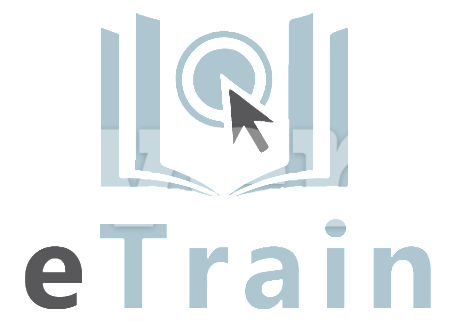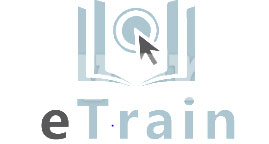Description
With a growing need for parents to work to support the livelihoods of their families, there has been a tremendous growth in the need for parents to find suitable places for their children to be looked after whilst they work.
Most childcare practitioners also work as special needs assistants. Whether that be in a school or care setting. Secondary schools usually have learning support departments where teaching assistants work with individuals or small groups of pupils to complement work being done in class.
With the need for professionals who specialize in assisting with special educational needs increasing, we have tailored this course to include modules on recognising and supporting children with special educational needs. Exploring key legislation governing practice, different types of SEN and how you can understand, support and provide for children with SEN. We have also included a module focused on Asperger syndrome. It is thought that 1 in 250 people have Asperger’s with up to 50% of people maybe going undiagnosed, to enter this sector it is key that you are well educated and informed on the key aspects and impact of Asperger’s. This course will also give you the ability to spot signs and symptoms of ADHD and feel confident providing children, young people and their families with accurate support and advice where needed.
KEY LEARNING POINTS
Learn how to use information sourced from a Key Person, SENCO and parents to form a plan, which can be used to organise the child’s activities and support, with emphasis on the EYFS where necessary.
Gain insight into the various child-led models of delivery, and the importance of the approach in comparison to service-led alternatives.
Understand the importance of observations, and how they can help with future plans and activities based on the child’s individual requirements.
Explore the various Special Educational Needs (SEN) that you will experience within a childcare setting, including Down’s Syndrome, ADHD, ADD, Cerebral Palsy and Asperger’s Syndrome.
Understand some of the key legislation points that help govern practice with regards to SEN.
Get to grips with the role of a SENCO and their importance in a childcare setting.
Learn how to write a SEN policy, the legal rights of SEN and disabled children, and the SEND Code of Practice 2015.
Appreciate the value of a practitioner’s support to families of SEN children, as well as the importance of inclusion of children with SEN and good inclusion practice in schools.
Understand more about the ‘triad of impairments’ which covers the three main areas that can be difficult to deal with as an individual with Asperger Syndrome, including social and emotional issues, language and communication, and the imagination and flexibility of thought.
Learn more about how Asperger Syndrome is a disorder that can affect people from all nationalities, religions, cultures and social backgrounds.
Get to grips with some of the ways in which an individual can interact with the world around them, and how individuals with Asperger Syndrome are affected.
Appreciate the impact of Asperger Syndrome, and other invisible disabilities (and how slow they can be diagnosed), can have on the individual.
Become clear on definitions of ADHD and ADD.
Learn about some of the symptoms of ADHD.
Explore the fact that although there is no cure for ADHD, there are ways that symptoms can be controlled using medical and psychological treatments.
Explore the ADHD Information Service website to get reliable background information on ADHD.
Learn about the different subtypes of ADHD from the ADHD Foundation website and explore the information section for parents and those working with young people.
Expand your knowledge by looking at the NHS’s resource on the symptoms, causes, diagnosis and treatment of ADHD along with information on living with the condition.
Get another perspective on ADHD in the article Being Diagnosed with ADHD Made Me Feel I’ve Put All the Jigsaw Pieces Together, written by an ADHD patient who was not diagnosed until adulthood.
Consolidate your learning with the lesson’s detailed presentation on ADHD.
Learn about good practice in supporting people with ADHD by watching the video ADHD: My Story, which charts the experiences of a young person named Annie.
Expand your learning by reading an article on famous people with ADHD and exploring some more helpful online resources on the condition.
Learn about the positive behaviour policy and why every childcare environment should have it, including the importance of encouraging positive behaviour rather than simply focussing on the negatives.
Acknowledge the importance of parents, and their role in helping children to behave well and display emotional stability.
Identify ways in which you can help children to interact appropriately with others.
Help a child to develop their understanding of meeting others’ needs as well as their own.
Explore the Positive Relationships theme of the EYFS statutory framework and understand the theme’s main principles.
Understand the various definitions of good behaviour and appreciate how broad this definition can be, depending on factors like the age of the child, their cultural situation and tolerance levels of staff.
Identify some of the strategies that can be implemented to encourage an improvement in behaviour, and explore the benefits of working with the appropriate outside agencies to help with these strategies.
Learn the differences between leading and managing, and the qualities and skills required to perform both roles effectively. Gain insight into the qualities and characteristics of a good leader within an early years setting.
Learn how to adapt from being a friend and colleague to becoming a line manager.
Recognise some of the ways in which you can negotiate and communicate with your team, so that the outcome suits all.
Understand the need for effective time management and excellent organisational skills.
Gain insight into the need for stress management, ensuring that a leader or manager stays calm and balanced, even during difficult times. Learn how to evaluate the reasons for these challenging circumstances.
ADVANTAGES OF THE COURSE
12 months unlimited access to the course content.
Sign in and study anytime, anywhere. All you need is an internet connection!
24 hour, Monday to Friday technical support.
Course completion certificate once you have completed the training.
Get your CV to the top of the pile using the knowledge and skills you have gained.
CACHE Endorsed Certificate(s) Included.
This Cache endorsed course is delivered by Laser learning our official partner.
Units of Study
Further Info
Recognising and Supporting Children with Special Needs (SEN)
Asperger Syndrome
ADHD
Managing Behaviour
First Time Leadership







Reviews
There are no reviews yet.